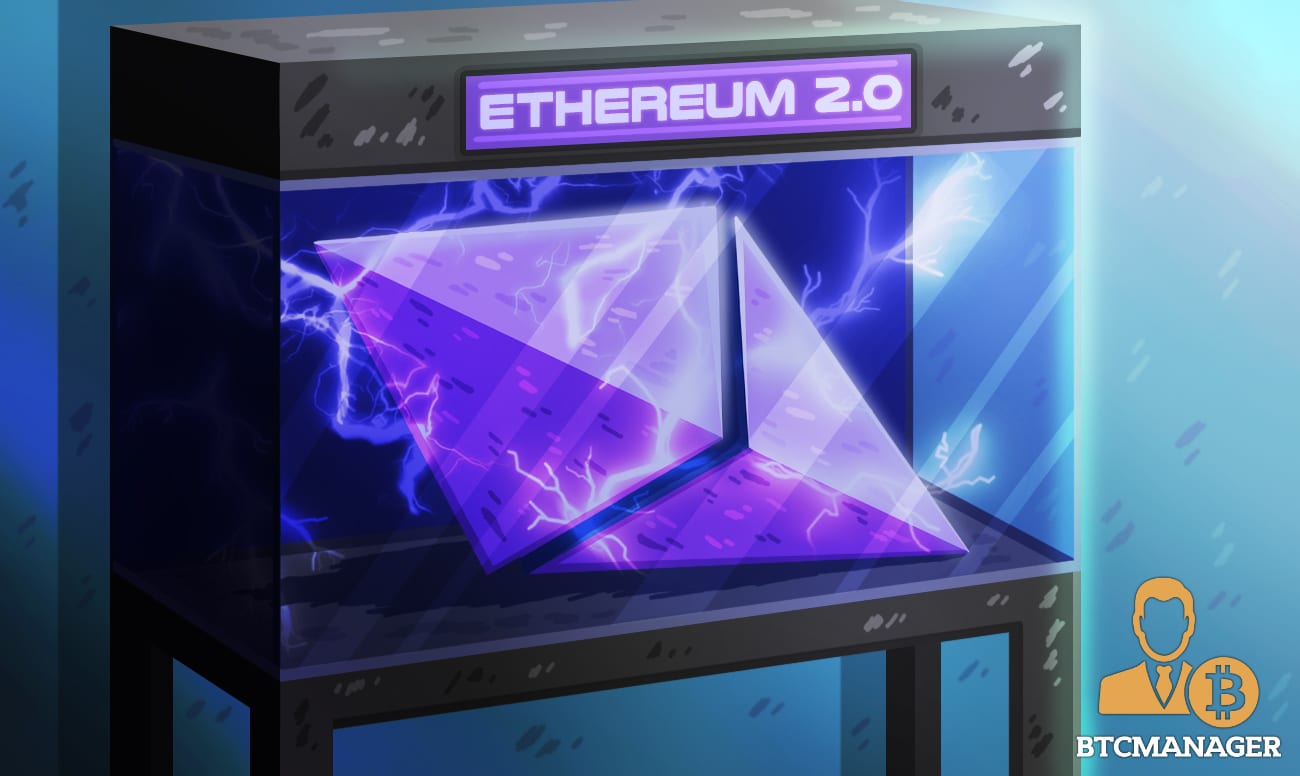Ethereum’s upcoming 2.0 “Serenity” update is regarded by most an important milestone, both technically and from an “investment” perspective in the network’s ETH tokens. However, with fragmented information available, developer Danny Ryan took to a blog post on the topic, days after an insightful AMA with Reddit’s Ethereum community.
Rapid Progress on Ethereum
Serenity sees the Ethereum network move away from a Proof-of-Work consensus algorithm to a Proof-of-Stake system, allowing users to run a validator node and support the network while earning ETH rewards in exchange for their computing power.
ETH 2.0 stands to make Ethereum much more efficient, secure, and scaling up to “high transaction volumes,” notes Ryan. Currently, the network can process up to 12 transactions per second seamlessly, over which network congestion causes slower transfer times and higher fees.
Ryan said the update will be rolled out in four major phases. Phase 0 sees the introduction of validator nodes, with 32 ETH being the minimum amount for users to launch a node. Phase 1 introduces “sharding,” a complex implementation that “splits” the Ethereum network into thousands of individual nodes, providing faster data inputs and transaction confirmations.
Phase 1.5 will integrate Ethereum’s current mainnet with ETH 2.0’s consensus mechanism. Finally, Phase 2 will introduce “states and execution” for developers. Ryan noted in this regard:
“There’s “rapid progress in bringing the abstract cross-shard ideas into concrete specs for discussion and ultimately prototypes.”
Ryan acknowledged there are many different Ethereum 2.0 clients and tools for testing purposes. However, all such tokens have no financial value and exist for testnet purposes only.
Reddit Community Answered
Earlier last week, Ryan answered questions posed by Reddit’s r/ethfinance explaining various stages of ETH 2.0, insights on upcoming features, and fielding questions on network security, possible centralization by stakers, among other.
He noted Ethereum developers are almost singularly focused on the launch of Phase 0. However, development in Phase 1 is undergoing continued progress and is expected to be rolled out “as quick as” Phase 0 is launched.
Ryan said smaller PC builds like Raspberry Pi 4 or similar rigs can handle Phase 0, but Phase 1 implementation will require extensive computing hardware. The developer also stated a DeFi-specific shard “was not unlikely” to cater to the vast interest and development in that space, acknowledging some applications can, theoretically, run better on separate shards.
Meanwhile, some community members said the concept of “ETH 3.0” was floating around, involving updating some components of Ethereum with zk-Snarks, to provide more privacy and increase network security.
But Ethereum co-founder Vitalik Buterin seemed to shoot down that idea, via a comment on the podcast’s Reddit post:
“At present, I favor the basic structure of Ethereum never again changing after (ETH 2.0) is out; only incremental tweaks.”
Sourced from crypto.news.
Written by contributor on 2020-06-04 11:00:23.









